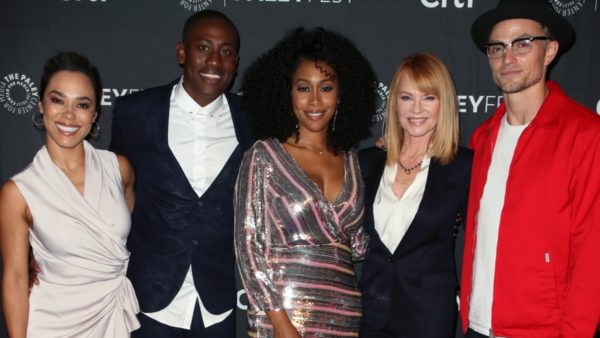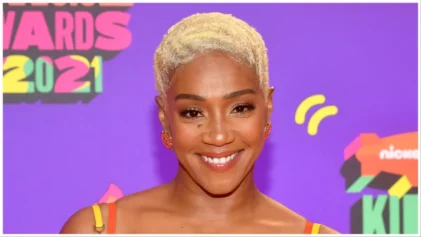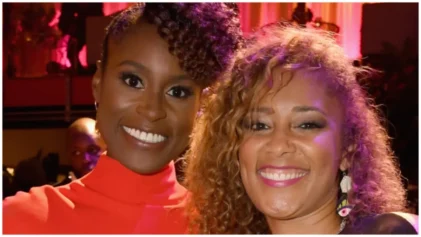CBS courtroom drama “All Rise” has a Black female lead in Simone Missick, multiple Black and Hispanic characters, and Black and Hispanic writers, but behind the scenes the the show has often struggled to portray nonwhite characters properly when scripts are being written. The New York Times says that’s the charge several of the writers have lodged against the showrunner, with five writers quitting the show since its September 2019 premiere for issues involving race, gender, and tokenism.
Some of the writers said that showrunner Greg Spottiswood created all the problems, and they had to go out of their way to ensure stereotyped, false, or even racist plot lines didn’t make it onto the show.

“We had to do so much behind the scenes to keep these scripts from being racist and offensive,” Black female writer Shernold Edwards, who quit in November, told the Times.
As an example, Edwards said Spottiswood didn’t believe that a Black bailiff would speak to a Black colleague about being pulled over by a white police officer.
RELATED: ‘Sister Luv’: Toni Braxton’s Pic with Her Sister Tamar Braxton Has Fans Tearing Up
“Because such harassment was so common that it would not merit a discussion between two Black co-workers,” he allegedly told the writers.
“The fact that I’m still being asked that question tells me that there are people on the show who are incapable of writing for people of color and should not be writing for people of color,” wrote Edwards in an email to “All Rise” producers, which was later published by The New York Times.
The scene was cut but later rewritten once Missick said her character would look cold and uncaring if she didn’t talk to the bailiff about being stopped.
For another episode, written by white writer Greg Nelson, a gang of Latin American teenagers in Los Angeles terrified a community with machetes, a storyline that one Latin American writer on the show spoke out against.
Latina actress Lindsay Mendez, who plays court reporter Sara Castillo on “All Rise,” also objected to the machete storyline and refused to be in the episode. Her refusal to participate made Spottiswood do away with the idea.
As for Missick, she plays Los Angeles County Superior Court Judge Lola Carmichael on the show, which has already been renewed for a second season. Perhaps not surprisingly, she hasn’t mentioned anything about the dust-up, instead spending time on social media supporting Black Lives Matter and bringing attention to Breonna Taylor’s case.
Another person who walked away from “All Rise” was Indian-American writer and executive producer Sunil Nayar, who said he was hired as a token.
“It became clear to me, when I left the show, that I was only there because I’m the brown guy,” Nayar claimed. “Greg hired me to be his brown guy.”
In a statement, Warner Bros. said that between August and November its human resources department investigated the writers’ claims, while explaining why Spottiswood was kept on.
“While the studio identified areas for improvement, the findings did not reveal conduct that would warrant removing series creator Greg Spottiswood from the executive producer role,” the statement read.
Spottiswood, who now has a Black female co-showrunner and a Black woman as his corporate coach to help him become a better showrunner, released his own statement.
“I acknowledge that I can have a rhetorical, professorial tone in the room, and that can be perceived by some as condescending, and that I can be defensive in creative conversations and debates,” he said in a statement. “I remain strongly committed to improving my communication style and skills, and to being a more inclusive leader — ensuring that writers and artists are not just heard, but feel listened to, respected, safe and valued.”
The report on “All Rise” comes as protests for racial equality continue in the United States, while many industries, including film and television, have been called out for unfair treatment of nonwhite people.


